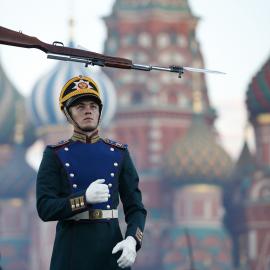To the Editor:
Marshall I. Goldman's "Putin and the Oligarchs" (November/December 2004) raises a number of useful points. It reduces the contemporary Russian business climate, however, to a clash between repentant oligarchs and greedy secret service agents, leaving out two important groups willing to work with the Kremlin to develop the Russian economy: the "patriotic" business class, comprising people such as Igor Naivalt, chairman of the board of the Baltic Construction Company; and a rising group of managers.
Goldman discusses the concerns of the siloviki-former KGB strongmen who are now government officials-in controlling Russia's natural resources, but does not mention Vladimir Litvinenko, rector of the State Mining Institute in St. Petersburg, who was an academic adviser to President Vladimir Putin and who continues to serve as a counselor to him. Litvinenko warned earlier this year that the government was "losing control" over the activities of natural resource companies. He has called for foreign investment in the resource-extraction sector to be limited to the processing segment and is opposed to non-Russian investors' taking majority control of mining enterprises.
Many of the trends Goldman identifies are policies Litvinenko has advocated; it is apparent that his positions influence not only Putin's thinking but also that of other key government officials, including Natural Resources Minister Yuri Trutnev, and even Prime Minister Mikhail Fradkov.
Goldman talks about state control and ownership, but Putin and his advisers do not intend to recreate the old Soviet enterprises, top-heavy with management and burdened by inefficient central planning. Instead, they seem to want profitable companies that can generate a revenue stream for their shareholders-including the Russian state. What is emerging is state-directed capitalism, in which private owners play a role and have the opportunity to bank profits.
We are seeing in today's Russia the consolidation of a system of managed pluralism-in which the Kremlin sets the overall agenda, but with some room for political and economic competition and choice. Whether this is a disappointing direction depends on with whom you speak. Most Russians support Putin's vision of "orderly" state-directed reform, looking to the center to reel in the power of the oligarchs and local bosses.
There is indeed a pronounced authoritarian streak in today's Russia. But there are also optimistic signs-the seeds of a middle class beginning to take root, the steady rise in the number of home-grown charities and other civil-society organizations-that point to a more democratic Russia emerging in the future.
Nikolas K. Gvosdev
Executive Editor, The National Interest, and Senior Fellow, The Nixon Center
